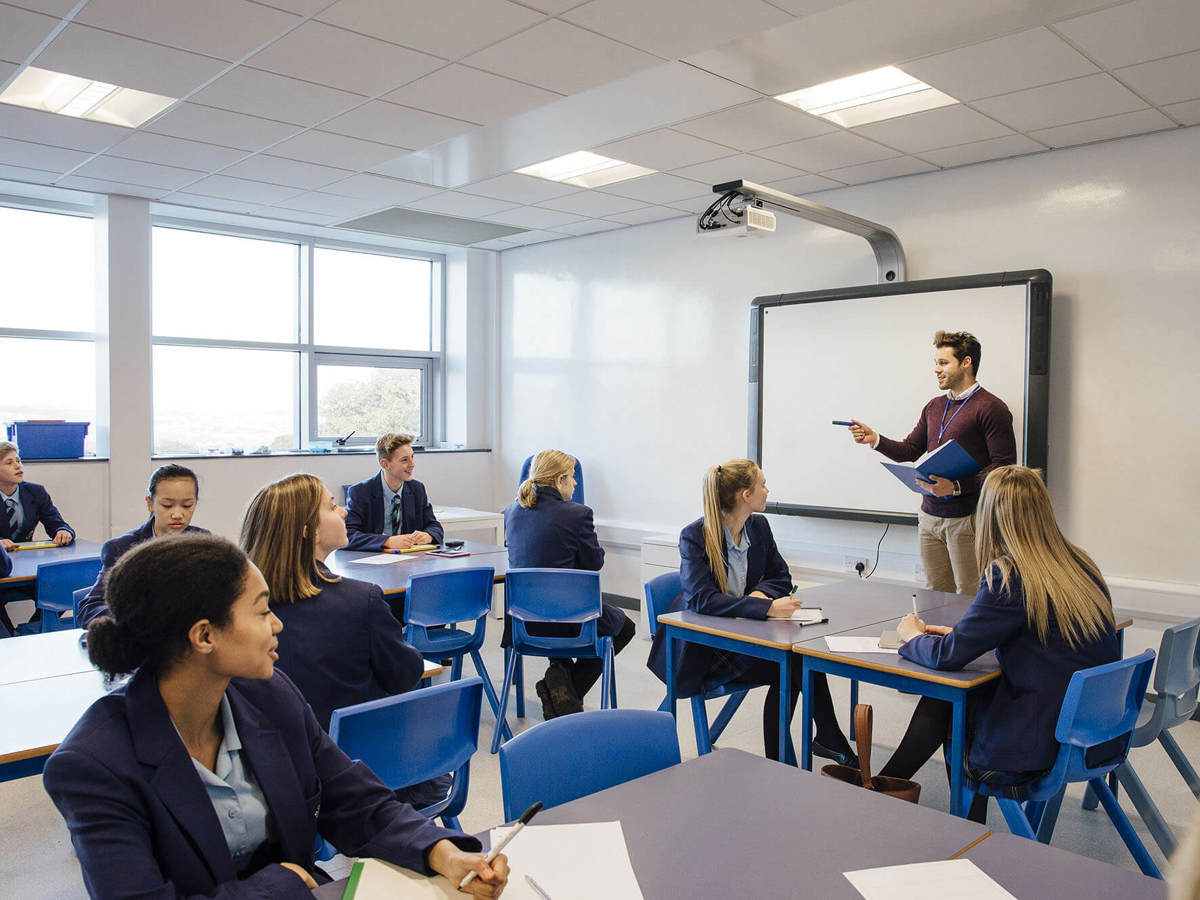
Today, Ofsted has confirmed its changes to school inspection. As proposed in the consultation held earlier this year, Ofsted will be moving to a new “report-card” format for every school.
The old single-word judgment will be replaced by a new five-point grading system across six to eight judgment areas, plus a “met” or “not met” grade for safeguarding. Evaluation areas include a new “inclusion” category and a refined “leadership and governance” category, placing additional prominence on the importance of governance – something that NGA has been advocating for.
The changes will take effect from 10 November, with the Department for Education also confirming how struggling schools are supported, and when intervention is necessary. Ofsted will initially prioritise schools that volunteer for inspection, before rolling out changes nationally in routine inspections from 1 December. Those governing can learn more about today's announcement in our summary of changes and online event with His Majesty’s Chief Inspector Martyn Oliver. Our e-learning and Knowledge Centre content will also be updated ahead of November.
The Department for Education have also published the outcome of their consultation on school accountability. As proposed earlier this year, school profiles are being introduced to provide a full picture of schools beyond just Ofsted grades. The RISE school improvement teams have been expanded, with the number of schools receiving support expected to double compared to the previous system, with academisation still the last resort for the worst performing schools.
Emma Balchin, NGA Chief Executive, said:"Today's announcement represents a significant step forward in how schools are assessed, and NGA welcomes many of the changes confirmed by Ofsted. We hope this will mark the beginning of a new chapter in restoring schools' faith in inspection. However, we will continue to advocate for a more explicit integration between the external accountability provided by Ofsted, and the week-in, week-out internal accountability delivered by governing boards across the country.
The replacement of single-word headline judgements with a more nuanced summary of a school's strengths and weaknesses is very much welcomed, as is the elevated focus on inclusion. We are particularly pleased that Ofsted have listened directly to our representations – governance now being explicitly included in the title of an evaluation area recognises not only its existing importance, but that good governance needs to be amplified in all school improvement journeys.
We are grateful that Ofsted responded positively to our concerns on grading scales. The new five-point scale has now rightly been refined and simplified with new terminology and a revised toolkit. The additional clarity on how inclusion is being defined and considered across evaluation areas is also a significantly positive step.
This announcement reflects that a number of concerns raised directly by our members during the consultation activities have been heard and acted upon. This includes minimising the workload implications of inspections, and ensuring greater consistency between inspections with the requirement that each one will be led by a HMI. As always, NGA, along with the rest of the sector, will need to see this being delivered in practice before being fully reassured. We stress our willingness and desire to work with Ofsted in delivering this transformation.
But the role of external accountability must be viewed through the lens of inevitable limitation when trying to fully understand a school in the space of a couple of days, every few years. Inspection can never and should never be isolated from the deep local knowledge and continuous engagement that governance provides.
As the national representative body for school and trust governance, NGA recognises the importance of rigorous and robust external accountability, which complements and validates the scrutiny conducted by boards throughout the year. We hope this framework will indeed do more to show how the work of governance volunteers is so crucial in working alongside leaders, teachers and other staff in fulfilling the life chances of our young people, ensuring no child is being let down."
Ofsted's new Approach

Related content
-
Guidance
![someone lookin at overseeing vision reports]()
-
Guidance
![man with his hands clenched together sitting at a meeting]()
-
Guidance
![two ladies and a man smiling in a meeting]()
-
Research
![]()
-
Guidance
![man discussing something with colleagues in a meeting]()
-
Guidance
![training crowd interacting with whiteboard]()
-
Guidance
![Pupils-learning teaching secondary school class]()
-
Guidance
![tools-resources two individuals checking over a document]() Updated: 08/01/2026Finance & resources
Updated: 08/01/2026Finance & resourcesCompleting the school resource management self-assessment checklist
-
Guidance
![tools-resources man pointing at paper woman writing on different paper]()
-
Guidance
![Pupils-learning young pupils running out of their school gates]()
-
Research
![Pupils-learning class learning in the library around a table]()
-
Guidance
![people in meeting looking across each other at table]()
-
Guidance
![training man with notes watching laptop]()
-
Guidance
![people raising their hands in a meeting room]()
-
Guidance
![arrow vision pointing upwards]()
-
Blog
![]()
-
Blog
![]() Updated: 13/02/2026Latest updates
Updated: 13/02/2026Latest updatesHow school governance is shaping the conditions for pupils to thrive
-
Blog
![]()
-
News
![]()
-
Blog
![]()
-
News
![]()
-
News
![]()
-
News
![]() Updated: 05/01/2026Visible governance
Updated: 05/01/2026Visible governanceCelebrating Governance Champions in the King’s New Year Honours 2026
-
Blog
![]()
-
News
![]()
-
Blog
![]()
-
Blog
![school-environment family using zebra crossing]() Updated: 27/11/2025Disadvantage: widening the lens
Updated: 27/11/2025Disadvantage: widening the lensTwo-child benefit cap lifted: why this matters for governing boards
-
News
![]()
-
Blog
![]()
-
News
![Pupils-learning smiling pupils outside sitting down on grass]() Updated: 12/11/2025Disadvantage: widening the lens
Updated: 12/11/2025Disadvantage: widening the lensNGA joins national call to end the two-child limit and tackle child poverty
-
Events & networks
![]()
-
Events & networks
![]() 07/05/20269:30 - 16:30Excel London, Royal Victoria Dock, 1 Western Gateway, London E16 1XLLatest updates
07/05/20269:30 - 16:30Excel London, Royal Victoria Dock, 1 Western Gateway, London E16 1XLLatest updatesMAT Conference 2026
-
Events & networks
![people looking at documents and making notes during a meeting]() 28/04/202616:30 - 18:00ZoomLatest updates
28/04/202616:30 - 18:00ZoomLatest updatesGovernance Leadership Forum: Exploring the schools white paper together
-
Events & networks
![virtual meeting]()
-
Events & networks
![]()
-
Events & networks
![]() 10/02/202616:30 - 18:00ZoomFinance & resources
10/02/202616:30 - 18:00ZoomFinance & resourcesGovernance Leadership Forum: Making Financial Efficiencies in Schools and Trusts
-
Events & networks
![Pupils-learning painting coloured circles]()
-
Events & networks
![]()
-
Events & networks
![Event]() 10/07/20259:45 - 18:00Birmingham Conference & Events Centre, B5 4EWLatest updates
10/07/20259:45 - 18:00Birmingham Conference & Events Centre, B5 4EWLatest updatesNational Governance Conference for Schools and Trusts 2025
-
Events & networks
![]() 10/07/20269:45 - 16:30The Vox Conference Venue, B40 1PULatest updates
10/07/20269:45 - 16:30The Vox Conference Venue, B40 1PULatest updatesNational Governance Conference for Schools and Trusts 2026
-
Events & networks
![]()
-
Events & networks
![]()
-
Individual training
![training working in groups of two]() 06/10/202618:00-20:00ZoomGoverning board roles
06/10/202618:00-20:00ZoomGoverning board rolesGovernance Essentials for SAT Trustees - Autumn 2026
-
Training & development
![]() 13/10/2026VariousZoomChairing
13/10/2026VariousZoomChairingDevelopment for chairs of Multi Academy Trusts, Autumn 2026 cohort 1
-
Training & development
![]() 13/05/2026VariousZoomChairing
13/05/2026VariousZoomChairingDevelopment for chairs of Single Academy Trusts, Spring 2026 cohort 1
-
Training & development
![Man pointing out something in meeting]() 09/06/2026and 10/06/2026 9:30 am - 12:00 pmZoomGoverning board evaluation
09/06/2026and 10/06/2026 9:30 am - 12:00 pmZoomGoverning board evaluationUnderstanding independent review panels, Summer 2026
-
Training & development
![training man and woman working from same laptop]()
-
Training & development
![people woman writing notes off her laptop]()
-
Consultancy
![training man presenting to sitting group of people]()
-
Consultancy
![training three people taking notes from same laptop]()
-
Consultancy
![People taking notes during a meeting]()
-
Consultancy
![two people exchanging documents in a meeting]()
-
Consultancy
![training woman writing notes off laptop]()
-
Consultancy
![Calendar]()
-
Consultancy
![tools-resources someone in a video call with nine others checking over graphs]()
-
Consultancy
![People having a conversation during a meeting]()
-
Training & development
![training woman on a video call with six others]() 03/06/202616:00-17:15ZoomInduction
03/06/202616:00-17:15ZoomInductionAn introduction to governance with NGA for local governors - June 2026























































